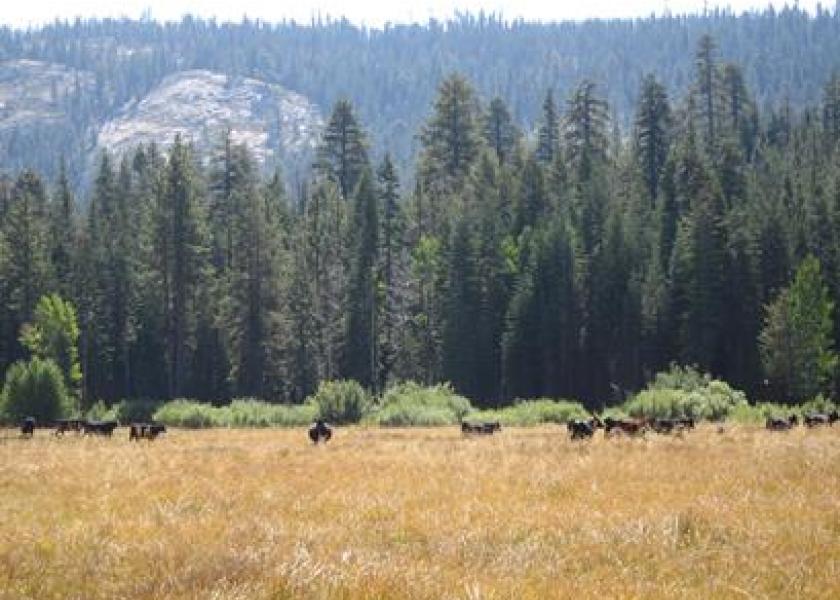Eliminating Grazing won't Reduce Impact of Climate Change on Rangeland

By: Tiffany Woods, Oregon State University Extension
Eliminating grazing won't reduce the impact of climate change on rangeland, according to nearly 30 scientists in the western United States.
The researchers, who work for nine universities and the U.S. Department of Agriculture, made this argument in a journal article in response to a debate over whether grazing on western public lands worsens ecological alterations caused by climate change.
"We dispute the notion that eliminating grazing will provide a solution to problems created by climate change," the 27 authors wrote in the peer-reviewed paper, which was a summary of scientific literature that was published online this month by the journal Environmental Management. "To cope with a changing climate, land managers will need access to all available vegetation management tools, including grazing."
Some scientists argue that livestock, deer, elk and wild horses and burros exacerbate the effects of climate change on vegetation, soils, water and wildlife on western rangelands. As a result, they claim that removing or reducing these animals would alleviate the problem.
In this latest paper, however, the authors argued that grazing can actually help mitigate some of the effects of climate change. Climate change, they said, is likely to increase the accumulation of flammable grasses and increase the chance of catastrophic wildfires unless those grasses are managed.
"Grazing is one of the few tools available to reduce the herbaceous vegetation that becomes fine fuel on rangelands," said co-author Dave Bohnert, the director of Oregon State University's Eastern Oregon Agricultural Research Center in Burns.
Globally, grazing is used for a variety of vegetation management objectives, in addition to fine fuel reduction, said lead author Tony Svejcar, a research leader at the USDA's office in Burns who also has a courtesy appointment in OSU's Animal and Rangeland Sciences Department.
The scientists also said that it's unclear how removing grazing would overcome the effects of large-scale climatic changes such as reduced snow packs.
The authors also pointed out that some criticism of grazing has been based on decades-old studies, when the scars of unfettered foraging were still fresh on the landscape. They added that in some places it's hard to tell if impacts from grazing are from current practices or if they are left over from the homesteading era when grazing was unregulated.
"Before the Taylor Grazing Act of 1934, it was a first-come, first-served competition, with the winners taking as much of the forage as they could because if they didn’t someone else would," said Bohnert, who is a beef cattle specialist with the OSU Extension Service and a professor in OSU's College of Agricultural Sciences. "Since then, we've learned more about the ecology and management of rangelands. Ranchers are constantly looking at ways to be more sustainable in their grazing practices."
Collaborators on the paper are from OSU, the University of Arizona, Brigham Young University, the University of California-Davis, the University of Idaho, Montana State University, the University of Nevada-Reno, Utah State University, the University of Wyoming and the USDA's Agricultural Research Service.







